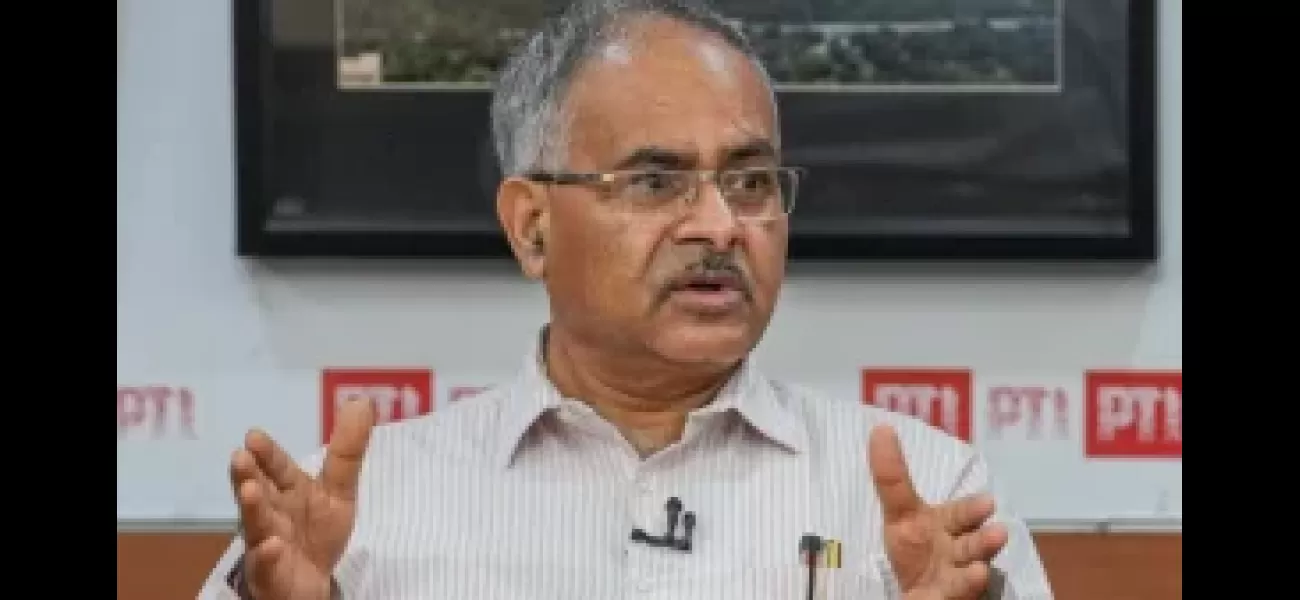NCERT head announces revisions to textbooks, says schools do not need to educate students about riots or destruction.
NCERT's director denies altering school textbooks for saffronisation, saying teaching about riots can lead to violent citizens.
June 16th 2024.

In a recent interaction with PTI editors at the agency's headquarters, Dinesh Prasad Saklani, the director of the National Council of Educational Research and Training (NCERT), addressed the accusations of saffronisation of school curriculum. He stated that the changes made to the textbooks, including references to the Gujarat riots and Babri masjid demolition, were a part of the annual revision process and should not be a cause for concern.
Saklani explained that teaching about riots in school textbooks can have a negative impact on students and may lead to them becoming violent and depressed citizens. He emphasized the importance of creating positive citizens through education and stated that subjects like hatred and violence should not be a focus in textbooks. He also questioned the relevance of teaching about riots to young children, stating that they can learn about it when they are older.
The NCERT director also addressed the criticism surrounding recent changes in textbooks, such as the removal of references to the Babri masjid and the BJP's rath yatra. He clarified that these changes were made to keep the textbooks up to date and relevant, and not as a result of saffronisation. He also pointed out that there was no outcry when the 1984 riots were not included in the textbooks.
Saklani also discussed the inclusion of recent developments, such as the construction of a Ram temple at the site of the Babri masjid and the new Parliament building, in the textbooks. He stated that it was their duty to include such information in the textbooks and that it was not a form of saffronisation.
The NCERT director also addressed the criticism of saffronisation of the curriculum, stating that changes were made only when they became irrelevant and not as a means of imposing a certain ideology. He emphasized that the changes were based on facts and evidence, and not an attempt to saffronise the curriculum.
Saklani, who has faced criticism over the changes in textbooks, clarified that updating textbooks was a global practice and was in the interest of education. He also stated that the changes were made by subject and pedagogy experts and he did not dictate or interfere in the process.
The NCERT is currently revising the school curriculum in line with the National Education Policy 2020. This includes changes such as the exclusion of topics related to Aryan immigration and the removal of a table detailing the achievements of Mughal emperors.
Saklani also addressed the changes made to the section on Ayodhya, stating that it was updated to reflect the latest developments in politics, including the recent Supreme Court verdict allowing the construction of a Ram temple at the site. He stated that some changes were made to remove irrelevant topics, while others were done to update information and reduce the burden on students due to the pandemic.
In conclusion, Saklani emphasized that the changes made to the textbooks were for the benefit of students and were not a form of saffronisation. He stated that the NCERT was committed to providing a well-rounded and fact-based education to students.
Saklani explained that teaching about riots in school textbooks can have a negative impact on students and may lead to them becoming violent and depressed citizens. He emphasized the importance of creating positive citizens through education and stated that subjects like hatred and violence should not be a focus in textbooks. He also questioned the relevance of teaching about riots to young children, stating that they can learn about it when they are older.
The NCERT director also addressed the criticism surrounding recent changes in textbooks, such as the removal of references to the Babri masjid and the BJP's rath yatra. He clarified that these changes were made to keep the textbooks up to date and relevant, and not as a result of saffronisation. He also pointed out that there was no outcry when the 1984 riots were not included in the textbooks.
Saklani also discussed the inclusion of recent developments, such as the construction of a Ram temple at the site of the Babri masjid and the new Parliament building, in the textbooks. He stated that it was their duty to include such information in the textbooks and that it was not a form of saffronisation.
The NCERT director also addressed the criticism of saffronisation of the curriculum, stating that changes were made only when they became irrelevant and not as a means of imposing a certain ideology. He emphasized that the changes were based on facts and evidence, and not an attempt to saffronise the curriculum.
Saklani, who has faced criticism over the changes in textbooks, clarified that updating textbooks was a global practice and was in the interest of education. He also stated that the changes were made by subject and pedagogy experts and he did not dictate or interfere in the process.
The NCERT is currently revising the school curriculum in line with the National Education Policy 2020. This includes changes such as the exclusion of topics related to Aryan immigration and the removal of a table detailing the achievements of Mughal emperors.
Saklani also addressed the changes made to the section on Ayodhya, stating that it was updated to reflect the latest developments in politics, including the recent Supreme Court verdict allowing the construction of a Ram temple at the site. He stated that some changes were made to remove irrelevant topics, while others were done to update information and reduce the burden on students due to the pandemic.
In conclusion, Saklani emphasized that the changes made to the textbooks were for the benefit of students and were not a form of saffronisation. He stated that the NCERT was committed to providing a well-rounded and fact-based education to students.
[This article has been trending online recently and has been generated with AI. Your feed is customized.]
[Generative AI is experimental.]
0
0
Submit Comment





